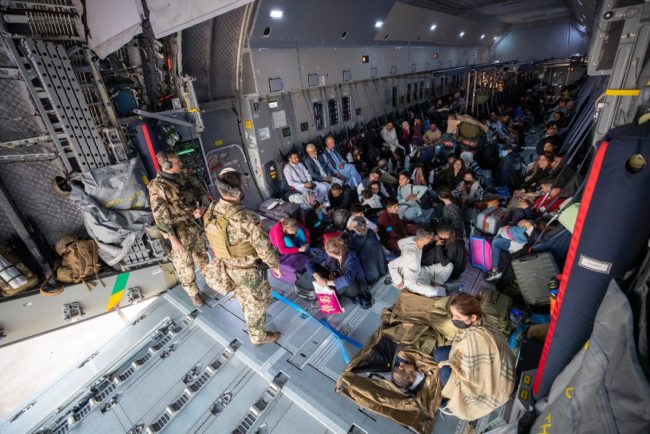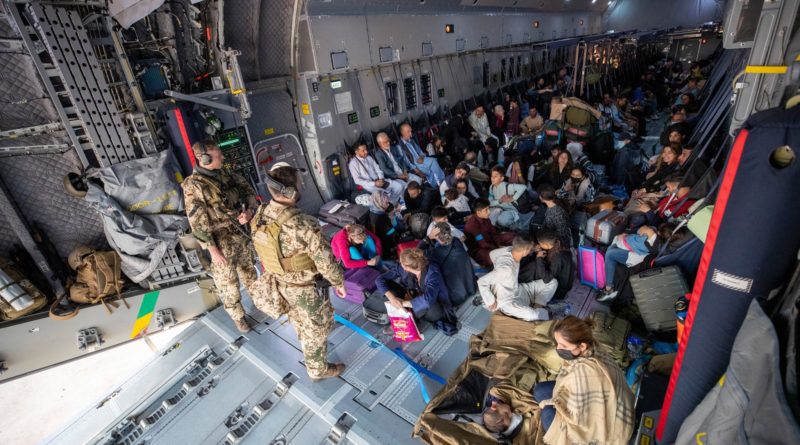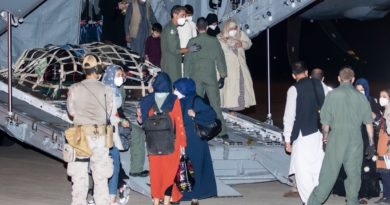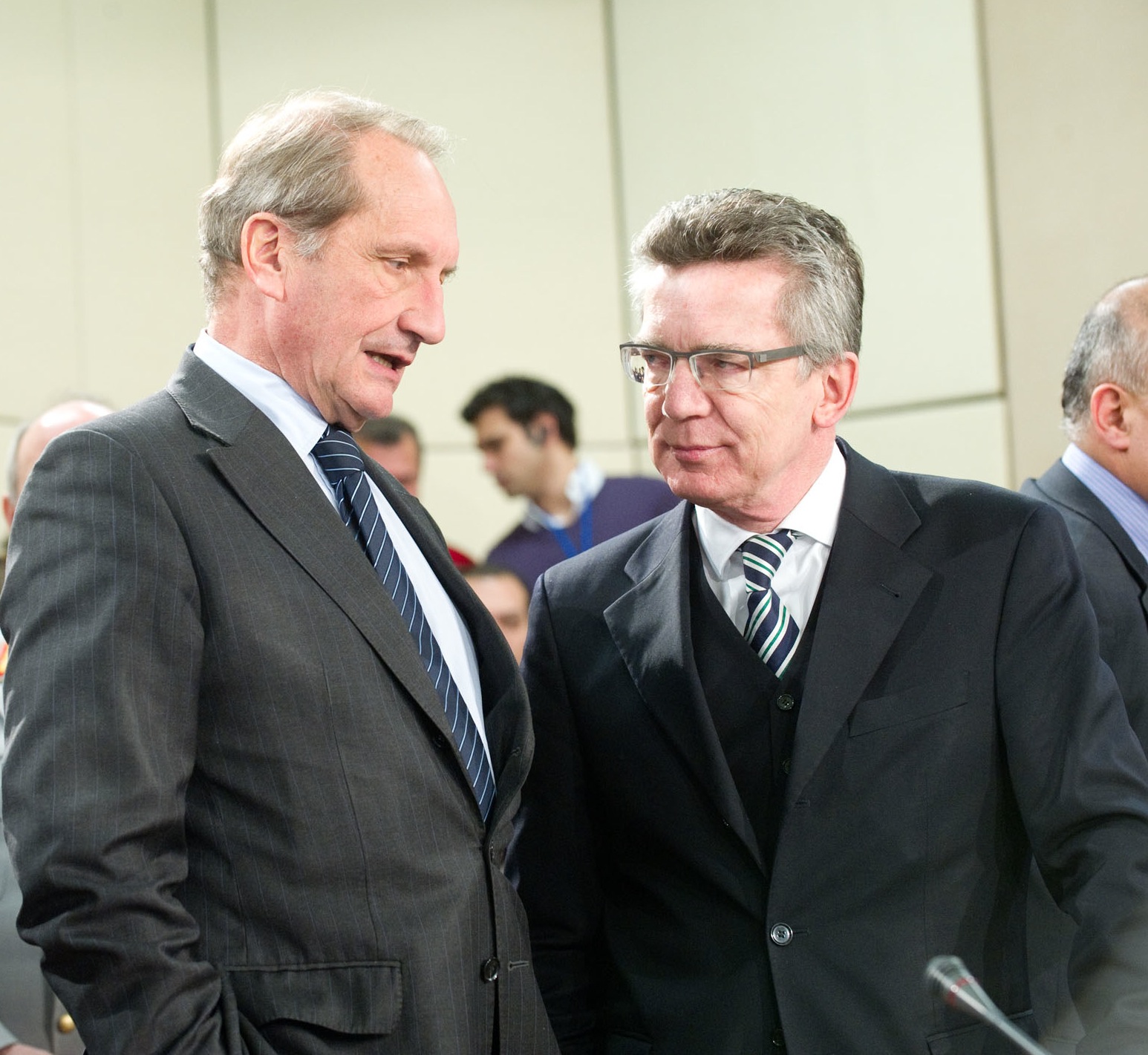First Lessons from the 'Kabul Crisis' (v2)
(B2) After the somewhat hasty evacuation of the Afghan capital due to the rapid advance of the Taliban, we can draw some quick lessons from the European reaction. On the anticipation of the crisis, the tactical and political coordination, imperfections remain, and which it is important to correct

- Points which the EU Defense Ministers will be able to discuss at their leisure, as they meet this evening in Ljubljana, the Slovenian capital, for their traditional informal back-to-school meeting (at the invitation of the Slovenian Presidency of the European Union )
Operational coordination to be consolidated
Europeans need not be ashamed of the number of people evacuated by their planes. About 24.000 people according to the last B2 count, to which we can add the 15.000 insured by the United Kingdom (i.e. 40.000 in total). Even though the environment on site was " chaotic to a safe place and repatriate so many people in record time, it is a undeniable success. But coordination upstream and downstream, between Europeans, still needs to be improved.
Lots of planes...
The Europeans mobilized as many planes as the Americans: about thirty tactical planes and ten strategic planes, according to our count. Added to this are civil aircraft mobilized for the occasion (from LOT, Air Europa, Air Belgium, etc.). But that's only a fifth of the total evacuees. The others being mainly evacuated by US forces.
Three factors temper this comparison. 1° The Europeans generally had smaller planes (the C-130 or A400M carry fewer people than a C-17 (except the planes in the NATO pool at the Papa base). 2° They also had a lower number of people to evacuate. 3° And, above all, it was the Americans who had control over air coordination and security at the airport. But that does not exempt us from asking the question of this absence of efficiency.
...a lower utilization ratio than the USA
If the Germans, for example, filled up their A400Ms, other countries left half full, or even almost empty. Like this Romanian plane with an evacuee on board! (read our detailed story: Run for your life. An airlift is organized to evacuate European nationals and Afghan employees from Kabul). Fortunately, the situation was more or less under control and the evacuation phase was finally able to last almost two weeks. In another scenario, such disorganization would have been dramatic.
We go national, then we coordinate
Each country left with its national means and on the places where it had a certain knowledge of the places. Without any consultation. In a European particularity, the Member States of the EU have not succeeded — with a few rare exceptions — in setting up common hubs. Between the noria of military planes that landed in Kabul and the strategic flights for Europe, there was therefore very little possibility of pooling the flights once the 'evacuees' left the risk zone. A nonsense.
Too many hubs
We have thus counted no less than seven hubs for Europeans. Abu Dhabi (United Arab Emirates) for the French; Tashkent (Uzbekistan) for the Germans and Navoi (Uzbekistan) for the Poles; Islamabad (Pakistan) for Belgians, Luxembourgers, Dutch and Romanians; Kuwait for the Italians; Dubai for the Spaniards; Tbilisi (Georgia) for Poles and Dutch. (NB: this does not facilitate synergies, in particular for strategic repatriations for Europe). It's a lot. Too much ! To review...
A European reflex to consolidate
The European reflex is not yet fully in play. Some countries have played the European card a lot, evacuating their nationals on behalf of other countries or organizations (Germans in particular, but also Belgians or Spaniards). Others have played a fairly national card (France). This big improvised bazaar was in fact a success only thanks to the involvement of personnel on the spot or in the capitals who 'played the telephone' to coordinate (and thanks to the Americans). This demonstrates the need for more appropriate 'consular' coordination: from the capitals to the field.
Political coordination still timid
The European political level reacted rather quickly with a meeting on August 17 of EU Foreign Ministers (followed on August 18 by Interior Ministers). But none of the defense ministers. The IPCR consular coordination mechanism did not work very well, according to some experts. In any case, less well than during the Covid-19 crisis (for the repatriation of Europeans at the height of the health crisis in spring 2020). There is no lack of a 'crisis room' at European level. Each institution has one (civil protection in the Commission, EU staff in the EEAS, consular in the Council). But there is no crisis room cut out to manage a civil-military crisis. And the political level is still failing, quicker to unite and declaim than to decide and manage.
The failure of NATO
In this rapid panorama, the surprise came from 'Bd Leopold'. The Atlantic Alliance, despite being at the forefront of military engagement in Afghanistan (ISAF, Resolute Support), got caught in the back. The meeting of NATO foreign ministers did not take place until August 20, a week after the start of the evacuation decisions. And three days after an equivalent EU meeting! (read : Afghanistan. Worried NATO foreign ministers beg US to stay longer). No meeting of defense ministers. A real air hole. The organization seems knocked out first by the rout of the army it has supported and trained for nearly twenty years. NATO-style nation building has failed. The doctrine of external intervention is undermined. The organization may have to refocus on its primary function: the territorial defense of the Euro-Atlantic area. As for the American alone, he brings the Alliance back to what it is: an organization built in Washington. NATO has not yet really found its balance, and its second pillar of stability!
Strategic autonomy to develop
This crisis shows, on the spot, that the search for a certain strategic autonomy is not just a political fad. It is a practical necessity.
Preparing to handle a crisis alone
If tomorrow, another crisis arises in an area where the Americans are not interested or do not want to get involved, will the Europeans be able to do the job that the US forces did in Kabul? The establishment of air coordination could be improved upstream, by relying on an enlarged EATC or a European CAOC and following the best practices (1). The idea of a first entry force cannot remain the subject of political questioning forever. No need for a large number. The figure of 5000 soldiers is largely sufficient (as shown by the US commitment).
Better anticipation
The common anticipation of the crisis has not been perfectly far-sighted. Not automatically for lack of information. But for lack of real analysis and political consequences. France had however warned – in a vision then considered pessimistic – of Afghan weaknesses and set up a first evacuation movement, from July of its nationals. Was the message not clear enough, not audible. In fact, the other Europeans (in their majority) preferred to temporize, waiting for the American signal. They are also self-intoxicated on the value of their Afghan proteges. A double error... Here again the Europeans must learn to do without the Americans, by creating their own 'Five Eyes' (2)
Emergency evacuations : a textbook case for Europeans
This is the most obvious (and easiest) option in which Member States must mobilize. It is not a possibility, it is an obligation, under strong pressure from public opinion. In such a situation, States are under great pressure. We have seen it in this crisis. Countries with a parliamentary tradition thus very quickly mobilized their parliamentarians to obtain approval for sending troops (Finland), or even anticipated their opinions (Germany). And it is likely to recur regularly, for very different causes (coup, natural disaster, etc.). The Europeans would do well to prepare better.
The end of the honeymoon with Biden
This is the main political lesson. Since the arrival of Joe Biden as President of the United States, Europeans have been very attentive to their host at the White House. Reassured to see their nemesis, Donald Trump, leave power, they saw in the Democrat their lifeline to their various incapacities. The disenchantment is clear. Joe Biden, like his predecessor, did not really consult or interact with his allies. The USA set the tempo. And the Europeans had to follow. Sometimes grumbling (in a criticism bordering on bad faith), but without the possibility of acting differently (or without daring to do so). Heartbroken from a reunion that has barely begun, the Europeans will have to face reality: the time when they could rely 100% on American brains, shoulders and legs is over.
(Nicolas Gros-Verheyde)
- The European Air Transport Command (EATC) in Eindhoven coordinates the resources of half a dozen European countries (France, Germany, Spain, Italy, Benelux). Coalition Air Operations Command (CAOC) plans, conducts and programs combined air operations. For Afghanistan, he was based in Qatar at the Al Udeid base under American responsibility.
- This term refers to the community for the exchange of information and analyzes set up between the USA, the United Kingdom, Canada, Australia and New Zealand.
Completed on the NATO part and the refocusing on the Euro-Atlantic area


